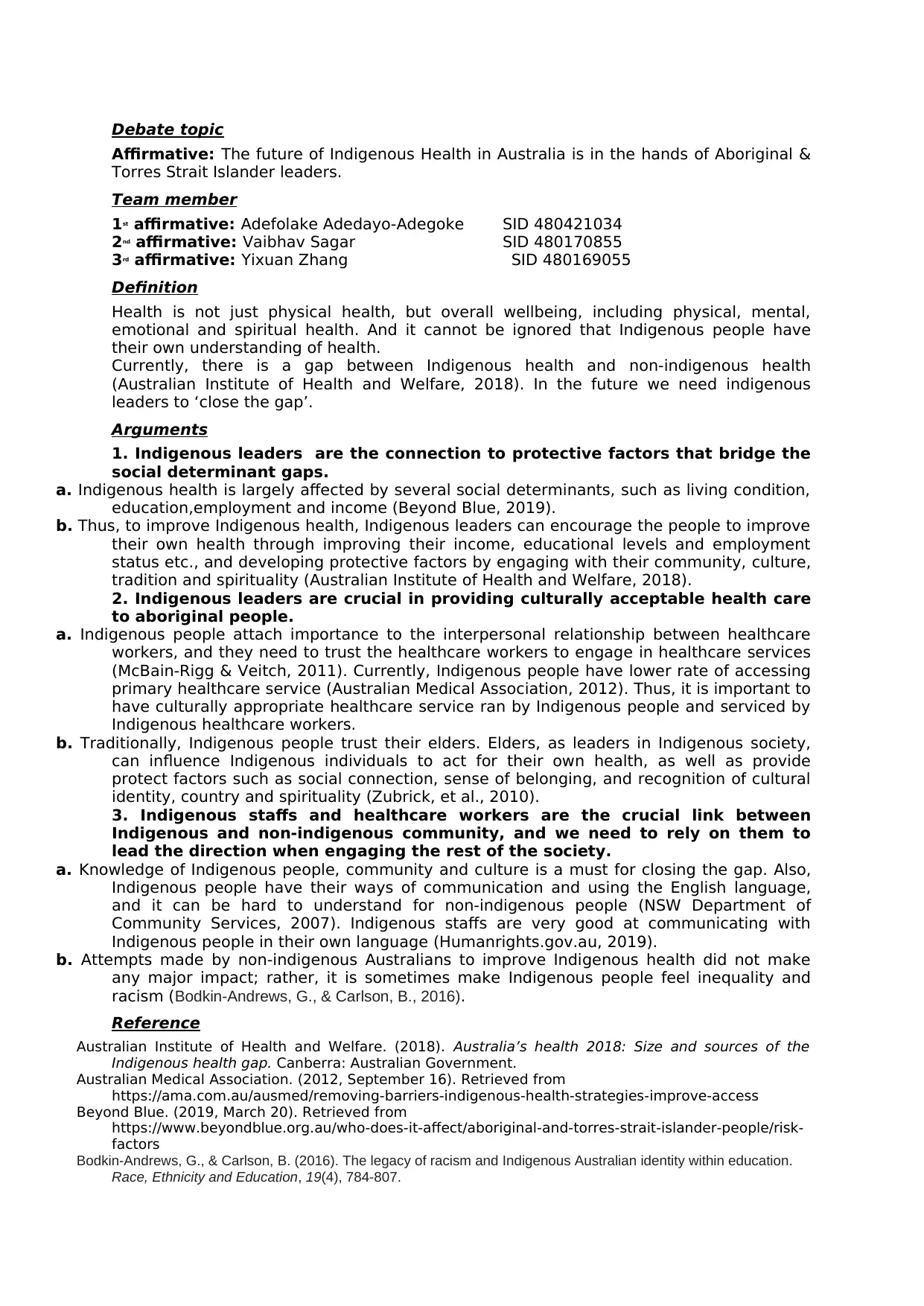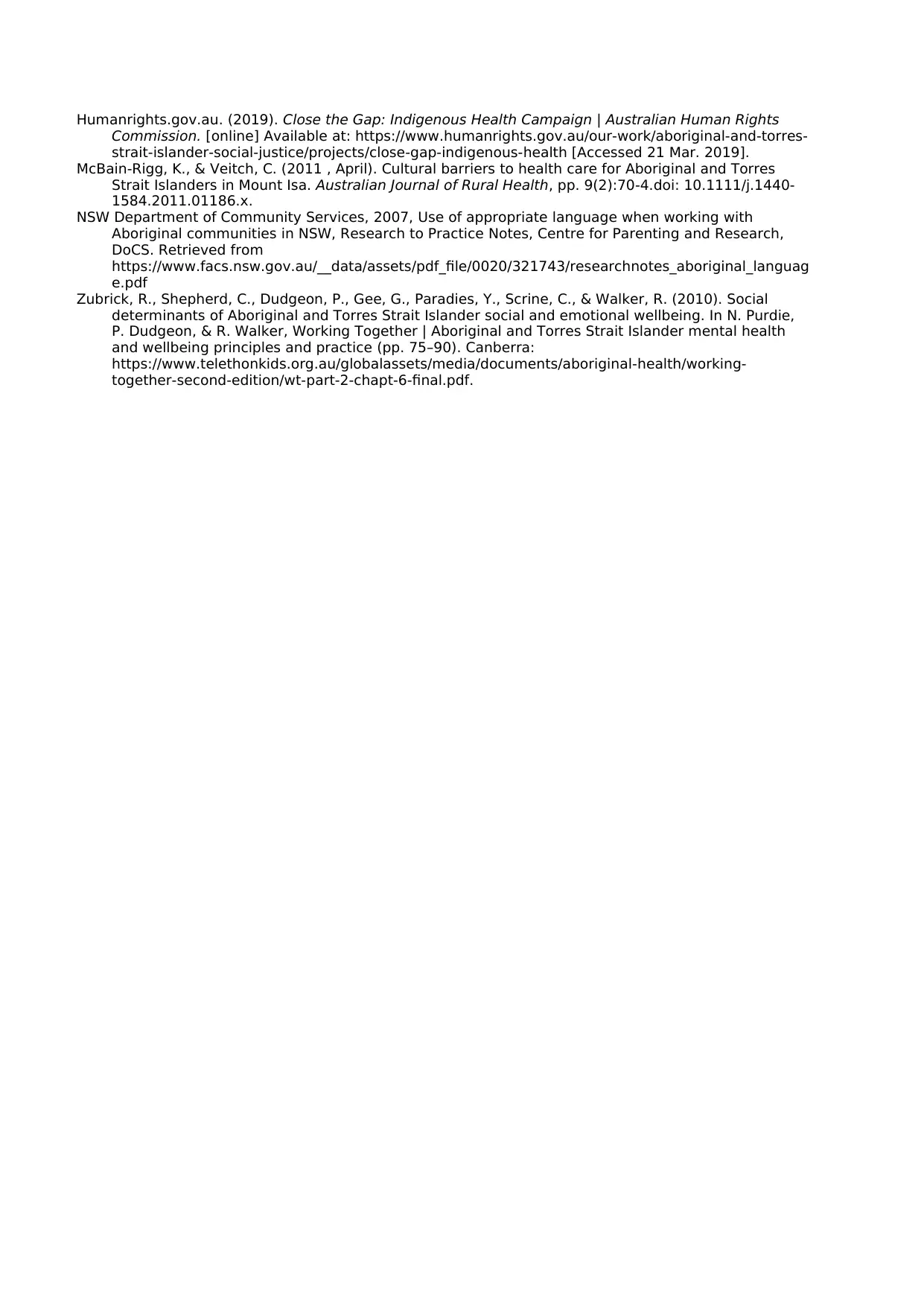Australia: Indigenous Health in Hands of Leaders Debate
VerifiedAdded on 2023/04/11
|2
|637
|356
Discussion Board Post
AI Summary
This discussion post presents an affirmative argument for the debate topic: The future of Indigenous Health in Australia is in the hands of Aboriginal & Torres Strait Islander leaders. The argument emphasizes that Indigenous leaders are crucial for bridging social determinant gaps, providing culturally acceptable healthcare, and acting as a vital link between Indigenous and non-Indigenous communities. The discussion highlights the impact of factors like living conditions, education, employment, and income on Indigenous health, suggesting that Indigenous leaders can encourage community members to improve their health outcomes by addressing these social determinants. The post also stresses the importance of culturally appropriate healthcare services and the role of Indigenous elders as trusted figures who can influence health behaviors and provide protective factors. Furthermore, it highlights the need for Indigenous staff and healthcare workers to facilitate communication and understanding between the Indigenous and non-Indigenous communities, as past non-Indigenous efforts have sometimes resulted in feelings of inequality and racism. The arguments are supported by references to various research and reports from reputable sources like the Australian Institute of Health and Welfare, Beyond Blue, and the Australian Human Rights Commission.
1 out of 2








![[object Object]](/_next/static/media/star-bottom.7253800d.svg)